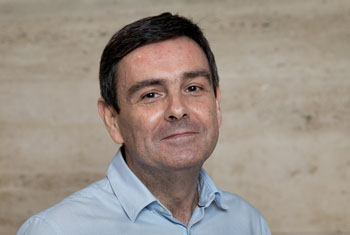
Prof. Jordi García Ojalvo
Director
It is a pleasure for me to present to you this annual report of the academic activities of our department during 2022. In a year that was characterized by a gradual normalization of academic life after the COVID-19 pandemic, MELIS continued generating new knowledge in all fields of biology and biomedicine, ranging from molecular and cell biology to physiology and evolutionary biology. Crucially, 2022 was the year in which the new UPF Bachelor’s Degree in Medicine began its journey in full, spearheaded by a close collaboration with the Parc de Salut Mar. This new adventure is helping us extend our academic impact at the clinical and translational levels, in large part through the incorporation of new professors in those areas, which we welcome enthusiastically.
From a general viewpoint, it is necessary to frame our activities within the context of the current global challenges faced by humankind, in particular those that threaten the well-being of our planet. Following UPF’s strategic goal in this direction, we hope that the research advances accomplished by our faculty in 2022, which you can consult on these pages, continue contributing to the ability of our society to face those challenges, through a rational approach to the way we live and interact with our environment.
Finally, and particularly within the context of our commitment to society through our Maria de Maeztu award, we have continued putting in place actions aimed at calling attention to the importance of responsible research and innovation, and open science. Within those contexts, several MELIS faculty members are leading projects and initiatives devoted to taking into account the impact that our work has on society, and to making our research results openly accessible to the scientific community and the general public. Most importantly, we cannot ignore the direct impact that our academic activities have on society through our strong commitment to higher education via our multiple Bachelor’s and Master’s Degrees. Through both our teaching and our research, our students have direct access to the latest advances in biomedicine and their societal implications. This aspect distinguishes us from other research centres in our environment and makes MELIS a unique element of our biomedical innovation ecosystem.
Before I let you delve into our accomplishments of the past year, I would like to acknowledge the excellent work and commitment of the professionals of MELIS at all levels (academic, administrative, and management), which have made it possible to offer you, in form and substance, the summary that follows. It is a privilege to work with such a devoted team of colleagues.
Prof. Jordi García Ojalvo
Director


